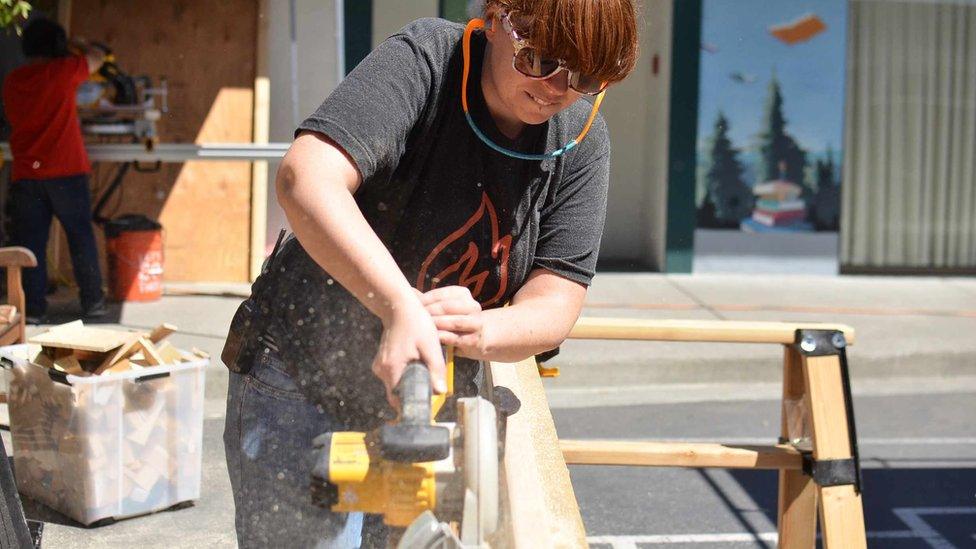Oxford research centre plans biggest recruitment campaign
- Published
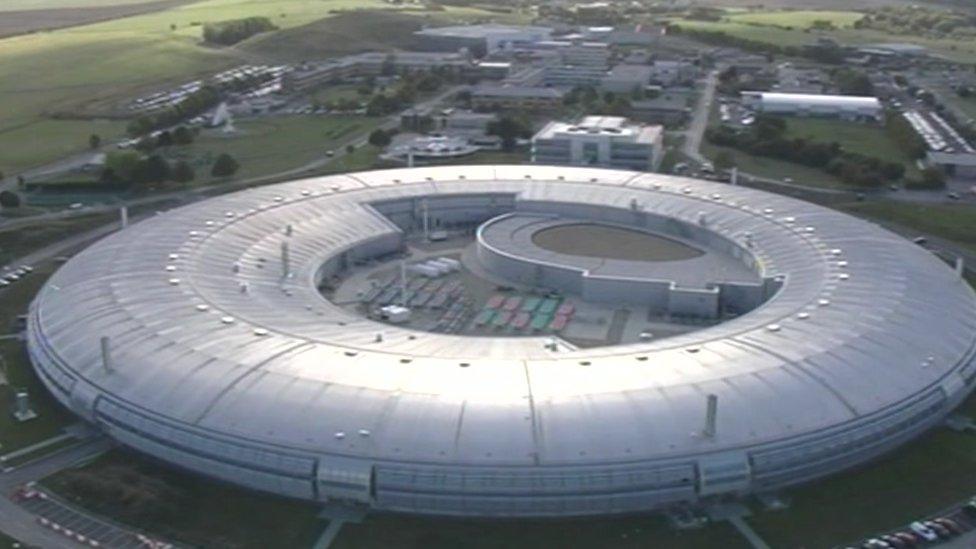
Diamond Light Source plans to increase the women in its workforce to "industry leading levels"
A research centre is planning its biggest recruitment campaign for women since it was created 20 years ago.
Diamond Light Source at Harwell has helped understand why chocolate tastes good, how the Mary Rose was preserved and has studied the Covid-19 vaccine.
23% of the centre's near 700-person workforce are women, but it plans to increase to "industry leading levels".
Addressing women, beam line scientist, Chidinma Okolo, said: "Science is as much yours as it is for men."
"Push yourself, as much sacrifice as it takes, it pays," she added.
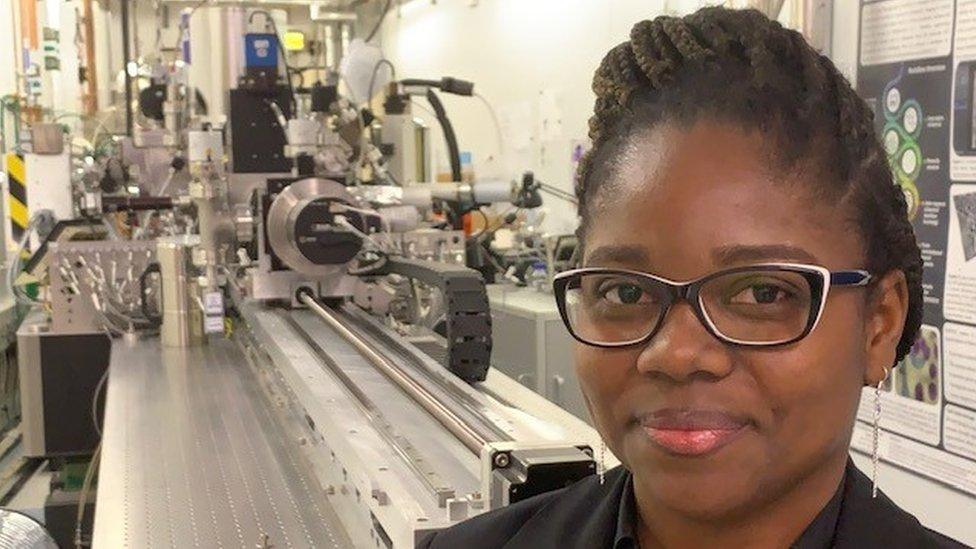
Chidinma Okolo, a beam line scientist at the centre, said science is as much for women as it is for men
Oxfordshire's Diamond Light Source is home to the synchrotron, a tool which speeds electrons up to near the speed of light in order to produce intense beams of light that can be used to probe matter.
Using it, the centre have been able to virtually unwrap Herculaneum scrolls and support the development of existing drugs and what effect they had on coronavirus.
The centre said women make up 24% of STEM employees in the UK but it wants to lead the way on increasing the number of women in STEM careers, primarily by opening up dozens more jobs.
Sarah Macdonell, who is head of the centre's engineering group said "there are no barriers" for women working at Diamond Light Source.
She said: "We're actively trying to encourage more females to come and join us, particularly in engineering."
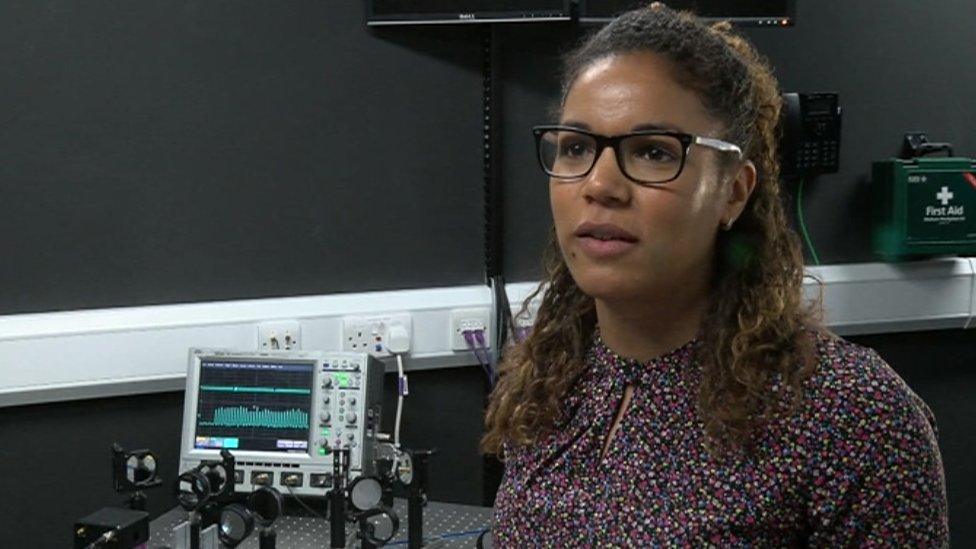
Dr Bobb said she was pleased that her "small contribution is having such a vast impact"
The centre's head of diagnostics, Dr Lorraine Bobb started as a summer student but left to finish her studies before returning to lead the team.
She said it is important to her "to know that your small contribution is having such a vast impact not only to the everyday person within the United Kingdom, but also thinking more globally".
Speaking about her experience in the industry, beam line scientist Lucy Saunders said: "There's no task that you can't do as a woman in science".
"Working in science, particularly in my field, it's a very nice, even split between men and women so you've got very supportive environment from everyone around you."

Follow BBC South on Facebook, external, Twitter, external, or Instagram, external. Send your story ideas to south.newsonline@bbc.co.uk, external.
Related topics
- Published11 October 2022
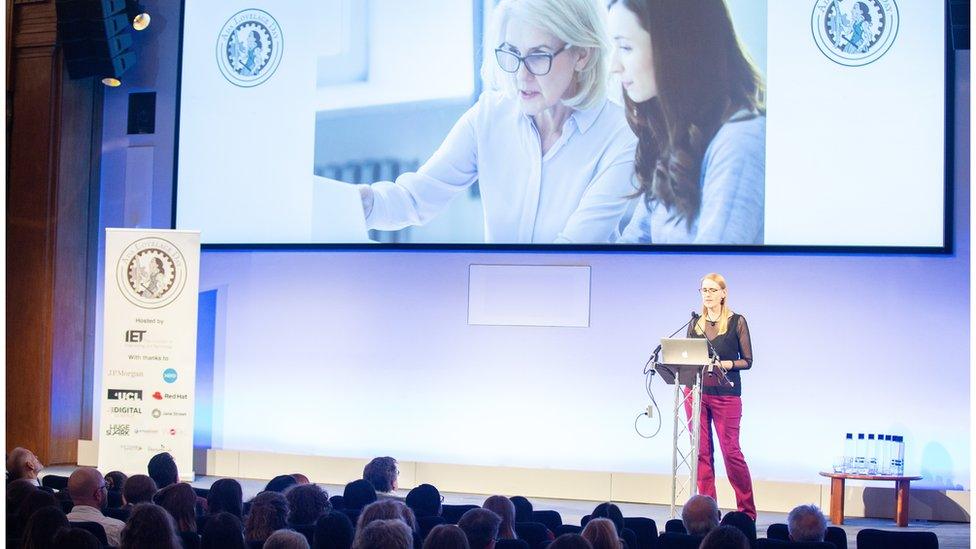
- Published5 March 2022
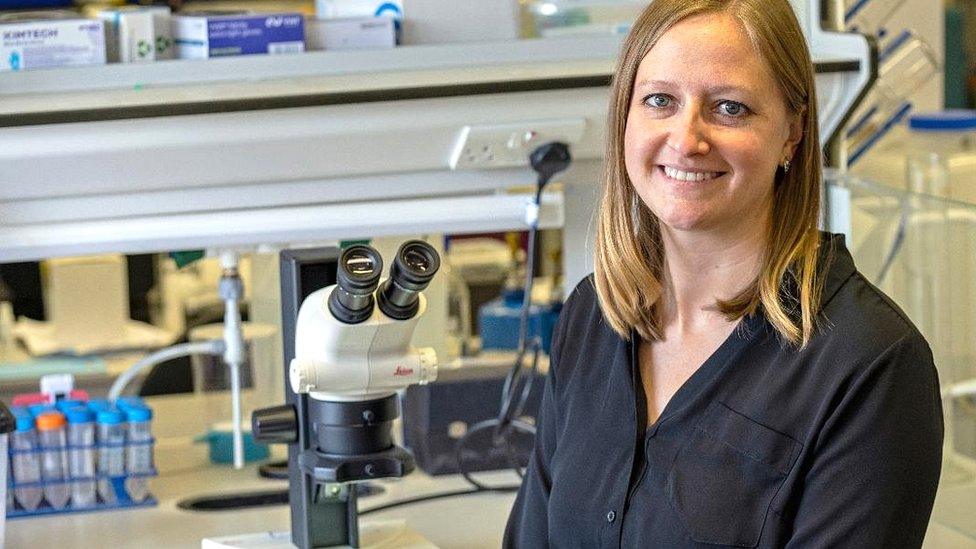
- Published7 January 2022
